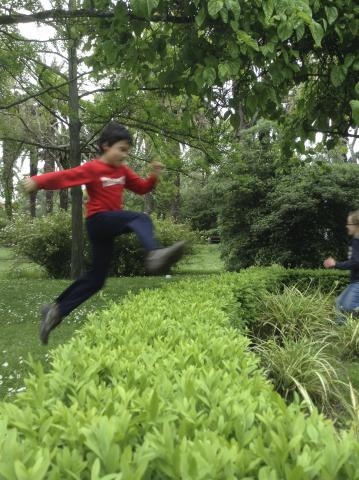 “Tell me, what it is that you plan to do with your one wild and precious life?”, Mary Oliver.
“Tell me, what it is that you plan to do with your one wild and precious life?”, Mary Oliver.
A vision for 2030: Looking back over the transition. Education in 2008 was woefully inadequate, given the scale of Transition to come. It became clear around 2010 that young people leaving school were unprepared for the more practical demands that the emerging powered-down made of them; their school years had left them unable to build, cook, mend, garden or repair, and the Government declared that youth was in crisis and education needed fundamental reform. A new curriculum was approved in 2012 which re-emphasised vocational education firmly rooted on foundations of sustainability and resilience- building. From primary level upwards, gardening, cooking and woodwork skills have become a core of the programme for the first time since the 1950s. School grounds have been transformed into intensive gardens, with many students running their own entreprises.
By secondary school age, students now learn construction, as well as creating, installing and maintaining renewable energy systems, alongside social skills like conflict resolution and community leadership. For adults, Colleges of the Great Reskilling are now central to most towns, offering a variety of courses in a wide range of practial sustainability skills for the public as well as retraining for professionals.
The number of smaller local schools around the country began to grow around 2015, as the price of liquid fuels made it unfeasible for children to travel long distances to school. By 2018 many of the larger comprehensive schools and universities were no longer able to attract their intakes from large areas and had to rethink how they used their facilities. With unused space on their hands they diversified, and are now also home to incubator units for new businesses, with skilled craftspeople having their workshops and offering apprenticeships onsite. Those schools which have become farms or intensive market gardens also now feature a diversity of value-adding enterprises. Schools are now vibrant, productive, bustling places, firmly rooted in, and key contributors to, the local economy."
* Fonte: Hopkins, R. (2008). The Transition Handbook. From oil dependency to local resilience. Chapter 8. Education (p.110-111)
Mais informações:
http://transitionculture.org/shop/the-transition-handbook/
http://transicaolav.blogspot.pt
Introduction
"Central to this book is the concept of resilience – familiar to ecologists, but less so to the rest of us. Resilience refers to the ability of a system, from individual people to whole economies, to hold together and maintain their ability to function in the face of change and shocks from the outside.
This book, The Transition Handbook, argues that in our current (and long overdue) efforts to drastically cut carbon emissions, we must also give equal importance to he building, or more accurately to the rebuilding, of resilience. Indeed, I will argue that cutting emissions without resilience-building is ultimately futile. But what does resilience actually look like?
(…) In 1990 I visited the Hunza Valley in northern Pakistan (…) The paths were lined with dry stone walls, and were designed for people and animals, not for cars. People always seemed to have time to stop and talk to each other and spend time (…) The people were resilient too, happy, healthy and with a strong sense of community. (…) a culture based on its ability to function indefinitely and to live within its limits, and able to thrive for having done so."
